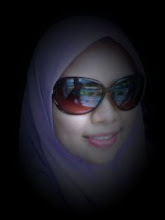
who says a muslim women cant' Be a success,i can show u powerful Muslim women In uk~
More Muslim women than ever are in leading positions on society,a fact that is at worst misrepresented and at best under-reported.Britain's frist Muslim Women Power List aims to change all that and recognise the women who are making a difference-Sabina Iqbal, 33, chair/founder Deaf Parenting UK
“Being Muslim and deaf makes me a unique role model for other Asian deaf women. Many Muslim people are very ignorant about deafness; it is like a taboo. But my family and my husband’s family helped me a lot. I went to a school for the deaf where the support was fine, but when I went to college it was appalling. I almost had a breakdown. But I always had to prove wrong those patronising people who thought, ‘Ah, you’re deaf, you can’t do this.’ My parents treated me and my brothers equally; they were great.
“Being Muslim is part of my identity, the same as being deaf and being a woman. What I wear is about individual choice. I don’t wear a headscarf, but I make sure that I look respectable. I don’t wear anything too revealing. You never really see deaf women in the Muslim community working their way up the ladder, so for me to say, ‘Yes, I’m deaf and I’m a Muslim,’ is very empowering.”
Bushra Nasir, 56, first Muslim state-school head teacher
“Being Muslim is my core being. It’s guided me in my way of working and thinking. I came to Britain when I was 8, so I went through the education system here. My life chances were changed by teachers who nurtured me.
“I haven’t encountered prejudice in the workplace, but I have found that people weigh me up to see if I’ve got the capabilities to do the job. I don’t think it’s prejudice, I think it’s naivety, and it makes me want to do my job even better.
Baroness Warsi, 37, Shadow Minister for Community Cohesion and Social Action
“I’d prefer to work in a world where we didn’t have to single out Muslim women for their achievements in order to make a point. Having said that, I’m honoured to be on this list, because the man in the street simply doesn’t think of Muslim women as high achievers.
“Of course I’ve encountered prejudice as a woman, and as a Muslim woman. One of the most specific forms of prejudice is journalists who ask, “Are you a Muslim first or British first?”, as if to say the two can’t be reconciled.
“I think that Islam is a hugely liberating religion for women. If Islam is interpreted properly, it is a religion that respects, supports and reveres women. Unfortunately, I don’t necessarily think that’s always the way that the Muslim community interprets it.”
Professor Farida Fortune, in her forties, dean of dentistry & professor of medicine in relation to oral health, Queen Mary’s, London University
“Until [9/11 and 7/7], I would never stand out from the crowd as being a Muslim. But then my son… said he was scared of anyone finding out he was a Muslim at school… and we had to say, ‘Never be ashamed of who you are.’
“Being on the dental faculty of the Royal College of Surgeons, I’m on the podium when people get their diplomas, and one girl said to me, ‘When I heard you were voted on, I knew I could do it too.’ I don’t think I encountered any prejudice in my career until two years ago, when there was a discussion within the university about dress code and Muslim sensitivities. I had to say, ‘Excuse me, being the only Muslim woman here…’, and they looked shocked.
“I aspire to support all my staff and students and many from diverse backgrounds. I don’t want to be seen to be supporting or representing a particular group or that my achievements or failures have been because I am a Muslim.”














No comments:
Post a Comment